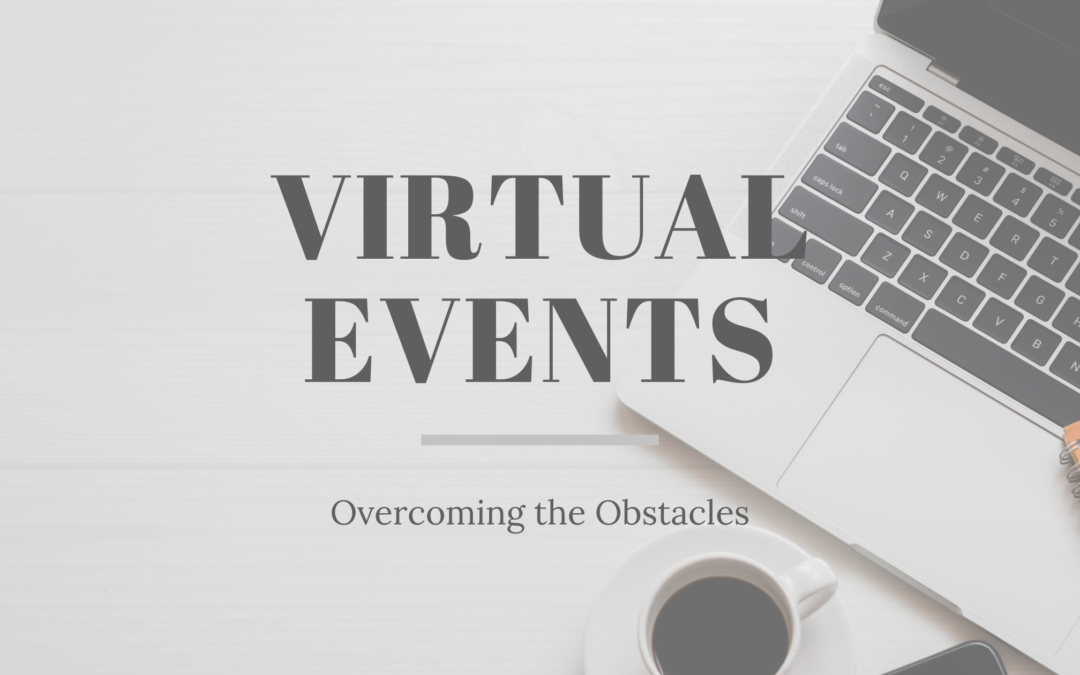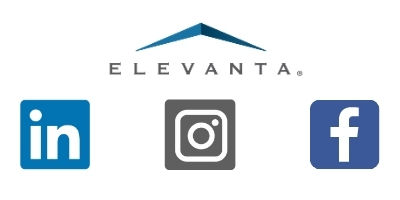2020 has been a whirlwind – the COVID-19 pandemic brought in-person events to a screeching halt, revolutionizing the meetings and events industry in a matter of months. As a meeting planner, you might be overwhelmed by this rapid change. Companies have likely been bombarding you with emails or phone calls about what their virtual platforms have to offer. How do you know what is the best route to take? Once you get on the right path, how do you overcome the obstacles that lie ahead?
After managing 30 meetings and conventions in 2019 and even more planned for 2020, Elevanta’s meetings and events team was prepared for a bustling year of travel. But as the industry changed, the team has adapted and learned about the many new and exciting opportunities ahead for event planners and attendees.
We spoke with our meeting planners about what they have learned while doing research and making the switch. Consider these pieces of advice on how to stay on top of industry standards when exploring the unknown of virtual events.
- Focus on what you know.
Much of the virtual events industry is new and unfamiliar to both planners and attendees. Because of this, it’s important as an event planner to focus on what you do know about event planning as a whole and apply this knowledge to virtual platforms. You know more than you think!
Elevanta Meetings and Events Coordinator Alli Correa explains that the true focus of virtual events remains unchanged. “It’s still about creating an experience. Is the content worthwhile? Does the agenda flow well? How do we get attendees excited? We’re still ticking all the boxes of event planning, just in a different sort of venue,” said Correa.
- Take advantage of new opportunities.
There are some aspects of virtual events that are convenient and cost-efficient compared to traditional events. Make sure your team takes advantage of these opportunities.
- Cost: Attendees don’t have to foot the cost of travel and accommodations to go to the event – they just have to click a few buttons. As for staff, costs like food and beverage, venue and other production costs might decrease as well. There are many different low-cost platforms that users have familiarized themselves with over the past few months such as Zoom, Skype and other similar platforms, that could serve as potential venues.
- Data: When hosting an in-person event, it’s almost impossible to gather data on your attendees. Sure, you can see when they registered and what sessions they plan on attending. With virtual events, mountains of data can be gathered that will help you as a planner – who attended which sessions, how engaged they were, what questions they asked and more. This information is a selling point for vendors and sponsors alike.
- Extended Shelf Life: Because sessions are recorded and posted, they can be accessible on demand for later viewing, prolonging the shelf life. Registrants who might have missed a live session can still attend or just refer back to it for advice.
Don’t forget to make your clients and potential registrants aware of these advantages.
“The most challenging part I have faced so far has been convincing the client that a virtual event is the best option at this time,” notes Senior Meetings and Events Coordinator Claudia Argenti. “It’s hard to get everyone on board with something so new and unfamiliar.”
This is why it’s crucial to communicate the benefits of going virtual and explain each step of the process, from registration to the day of the event.
- Reset expectations.
Client and planner expectations should be reset or even removed entirely. Vendors and virtual event platforms have been launching new, expensive software and putting an image in peoples’ heads of what events in the new normal “should” look like. But in reality, the perfect format and platform is different for each client.
Consider your attendees’ attention spans and what would be engaging through a screen. While Elevanta is used to planning long days of meetings with several breaks, this agenda format might not work for a virtual event. Think about breaking your event down into shorter blocks of time.
Instead of just assuming what your client wants, ask them. If you are planning an association event, consult the board of directors and find out what components of an event are important to them so you can choose the right platform and agenda.
- Hold a practice run.
After selecting a platform and creating sessions, make sure that you effectively test it and think through possible scenarios that could occur.
“Technology can be unreliable at times,” said Argenti. “The planner must also have a backup plan, just like they would if it rained at an in-person event.”
Digital Media Coordinator Morgan Fitzgerald advises teams to internally test out a platform multiple times before your first event. “Ideally test your format at least two or three times to identify any potential bugs,” said Fitzgerald. “You don’t want to have to figure these things out during the actual event.”
The Elevanta team has been hosting “dress rehearsals” with office staff to practice for events, familiarizing the event planners with the platform in real time and ensuring a successful virtual event for our clients.
To keep up with the Elevanta teams and learn more about virtual events, be sure to follow us on social media.


